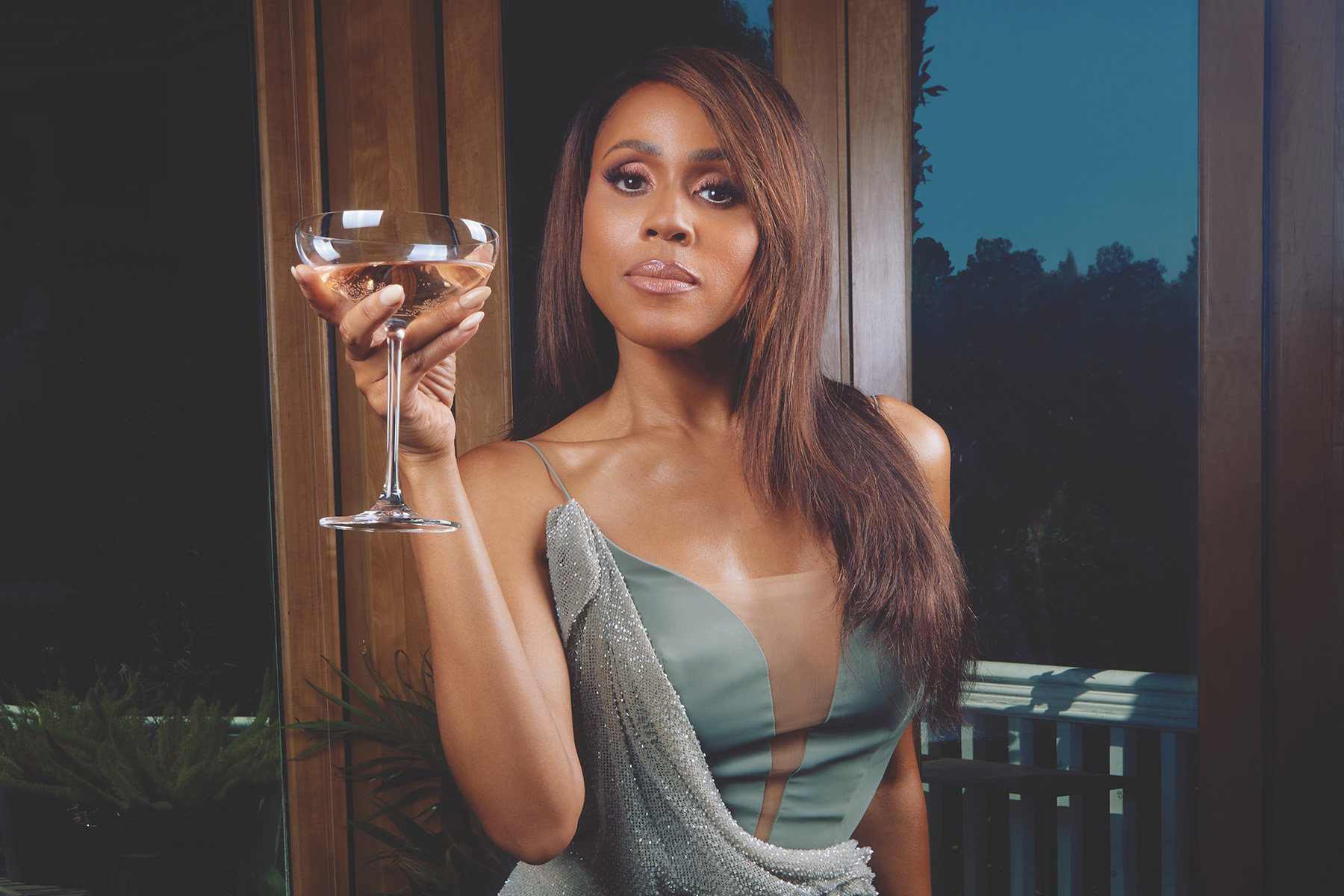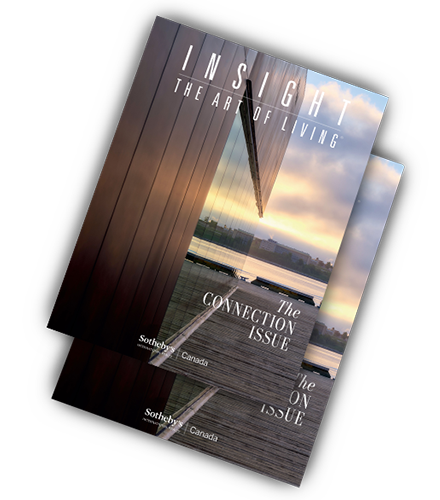Deborah Cox opens up on breaking new ground in music and film, as well as finding passion in her latest pursuit — winemaking.
“Beyond Category” was the highest praise Duke Ellington could give any musician he listened to. That’s 14 letters and two words, a phrase borrowed from another musical giant who conceived it — Billy Strayhorn, the composer of Ellington’s sublime tracks, like “Lush Life” — and reserved for talent defying classification.
Few could embody this bygone designation today as well as Canadian singer, songwriter, actress and philanthropist Deborah Cox.
The stack of titles on Cox’s CV may seem like a stretch or may read like a hyperbole-inflated press release from an over-caffeinated publicist. Yet, those who fully grasp her full career trajectory know that it was hard won. While her voice — that unforgettable mezzo-soprano behind R&B jams such as “Who Do U Love?” (off her self-titled debut in 1995); #1 Billboard dance anthem “Nobody’s Supposed to Be Here” (from 1998’s One Wish); Juno-winning jazz rendition of “This Bitter Earth” (on 2007’s Destination Moon); and pop hits like “Beautiful U R” (off 2008’s The Promise) — is internationally recognized, her life story is still quite unknown.
Fortunately, the recent deluge of public recognition of Cox’s distinguished career has allowed many music fans to get to know her more. For example, Cox made history last May, when she became the first Black woman to be inducted into the Canadian Music Hall of Fame. In September, the mayor of Toronto honoured her with a key to the city. Then, in December, she was given a star on Canada’s Walk of Fame. It’s this Cox renaissance that has pushed her to open up about where she’s from, where she’s been and where she’s going.
“Being acknowledged this way makes you look back a lot, and it motivates you to use your voice to tell people how you’ve gotten to where you are. You realize you have to give people that bigger picture,” Cox says, via Zoom, from her home in Florida. “It’s made me realize how recognition and representation are so important, and so is [how you] see someone that looks like you succeed…. It can make a huge impact on another generation. It did for me when I saw Whitney Houston sing on television.”
Although ending up coming full circle in the year 2000 — singing a duet with Houston on the song “Same Script, Different Cast” — Cox says that part of presenting her life story nowadays is doing it in a way that doesn’t just highlight the high points. She is making a concerted effort to acknowledge her own hustle and grind. “I remember so many freebies, so many late nights, so many favours for people for little or no money, and so many rejections,” she says, revisiting her exasperation then. “There was nobody to look up to — no Black radio in Canada, little support for soul or R&B music in the country. It was all new territory, so I found myself having a lot of doors slammed in my face. Recently getting acknowledged for all the dedication and time you have to put into a career like this means so much because I now get it. There’s something to be said about continuing in a business that doesn’t recognize you.”

Few know that Cox — the winner of a Juno, a Soul Train Music Award and an American Music Award — grew up in Toronto, in the Flemingdon Park neighbourhood, where child poverty is four times that of other boroughs in the city. She eventually moved to Scarborough and honed her craft through consistent vocal study and a series of low-paying gigs that involved singing commercial jingles and a lot of recording session work. It all eventually led her to a decent gig singing backup for Céline Dion, which, in turn, led her to Clive Davis, the record impresario responsible for signing Whitney Houston, ushering in Annie Lennox’s solo career to North America and updating the repertoire of icons like Aretha Franklin.
Yet, Cox’s work was still cut out for her. Hopscotching genres and styles of music across five studio albums, she found herself on both the R&B, pop and adult contemporary charts. Her earlier days started what Cox considers one of “the greatest love affairs of my life because of the undying support of the LGBTQ+ community,” as the songs off her debut album and subsequent releases were all remixed by Queer DJs for LGBTQ+ nightclubs, subsequently taking her to the top of the Billboard dance charts.
“Back in the day, when “Who Do U Love” was remixed by DJ Junior Vasquez, I remember hearing stories at the club from devoted fans that made me realize that my relationship with LGBTQ+ people was like being in a serious marriage,” says Cox. “This is a really deep connection that I have with people who feel undervalued, who don’t feel seen, and so I’ve never taken the audience for granted.”
Finding herself at the centre of ’90s gay nightlife was like living in a glamorous television series. “I’d be at gay clubs with Cher, Madonna, Donna Summer, and I was always the up-and-coming one,” recalls Cox. “I saw how all of the high rollers rolled and saw their flow, and I saw what it was like for them to constantly be in that successful space all the time. But then I could head onto the dance floor and dance with fans easily, whereas a lot of those icons were constantly on display.”
The kinship Cox felt with LGBTQ+ people inspired her to give back through philanthropy, lending her voice and talents to GLAAD (Gay & Lesbian Alliance Against Defamation), amfAR (American Foundation for AIDS Research), The Trevor Project and numerous other Queer and HIV/AIDS-related charities. She has recently become an ambassador for Révolutionnaire, a social network dedicated to digital changemakers, whose causes range from anti-gun violence and racial equity to criminal justice reform and environmentalism. Cox’s multicultural, multi-generational fan base has also followed her acting through the years, from Broadway to becoming a television series regular (The First Wives Club and Station Eleven) to the big screen (she’s slated to appear in the upcoming film Maybe Next Time.
Cox has recently tacked on yet another occupation to her résume — winemaker. The result of her memories of touring France with Céline Dion, her pandemic project was all about sourcing grapes and locales in Provence as a prelude for the launch of her wine label — Kazaisu, a combination of her children’s names, Kaila, Isaiah and Sumayah. The first bottle to go to market is rosé. “For singers, red wine can cause acid reflux, but rosé is easier to drink and gives you the best kind of buzz,” she says, noting that her discerning taste buds created a few hurdles, aka months of deliberation.
“My main criterion was finding an organic vineyard and that perfect balance in the rosé that was a cross between two grape varietals I fell in love with — Garnacha Grenache and Cinsault. I also had to make sure that what we made was eco-friendly.” Part of her journey into vintner culture was balancing what she liked with what the experts she surrounded herself with also approved. “The combination was very hard to find, but I find the taste to be divine…the sommeliers thought so, too.”
Meanwhile, in terms of her musical pursuits, Cox is booked for shows this year and is in the throes of recording her next album. “It’s soulful pop,” she explains, “but I’m still making music for underdogs. I’m making music for the ones that are never recognized, the ones that have to constantly prove themselves — for the vulnerable who are not strong enough to talk about their weaknesses.
“It’s my calling to make music for these people, people like me, to help them to be brave.”
By Elio Iannacci – This article originally appeared in Insight: The Art Of Living Magazine – The Passion Issue



